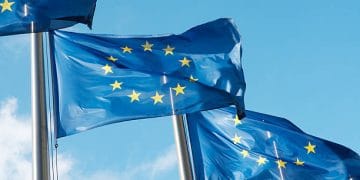EU leaders convened on Wednesday to deliberate on a potential course of action in light of concerns regarding Russian interference leading up to the June elections within the bloc. Several member states advocated for sanctions aimed at addressing what they termed as “malign activities” attributed to Moscow.
Amid escalating warnings from Brussels regarding Russia’s dissemination of disinformation ahead of the polls and its efforts to undermine Western support for Ukraine amidst the ongoing conflict, the issue gained prominence. Recent revelations from Czech intelligence alleging that EU lawmakers received funds to propagate Kremlin-backed narratives through a Prague-based news outlet further intensified the discussions. These allegations are currently under investigation in Belgium, where the EU institutions are headquartered.
Following the first day of the summit in Brussels, European Council President Charles Michel stated that EU leaders had deliberated on the threat posed by Russian interference and had agreed to collaborate more closely to address it. Emphasizing the need for increased vigilance and cooperation, Michel underscored the importance of utilizing available tools both at the European level and within national jurisdictions.
Belgian Prime Minister Alexander De Croo and Czech Prime Minister Petr Fiala urged fellow leaders to contemplate imposing new sanctions to counter Russian interference activities. In the draft summit conclusions, EU leaders pledged to closely monitor and mitigate risks associated with foreign information manipulation and interference in electoral processes.
Additionally, De Croo announced plans for the Belgian EU presidency and the European Parliament to establish a joint task force to monitor developments and coordinate with national authorities. However, given the presence of leaders with pro-Russia inclinations, such as Hungary’s Viktor Orban and Slovakia’s Robert Fico, prospects for significant action ahead of the June elections remained uncertain.
The allegations concerning the EU parliament revolve around the Voice of Europe website, known for disseminating Russian-aligned narratives and providing a platform for individuals espousing such views. De Croo emphasized the urgency of addressing these concerns, stating that concrete evidence of financial influence on election outcomes necessitated proactive measures.
European Parliament President Roberta Metsola cautioned against the potential manipulation of narratives by Russia to bolster pro-Kremlin sentiment ahead of the elections. Metsola reaffirmed the European Parliament’s commitment to assisting member states in countering any malign interference with democratic processes.
In addition to publishing outright false information, Russian disinformation tactics identified by EU officials involve blending factual elements with false narratives to sow confusion and distrust among readers. Prague has already imposed sanctions on the Voice of Europe website and two pro-Kremlin Ukrainian politicians implicated in its activities.
While specific lawmakers from Belgium, France, Germany, Hungary, the Netherlands, and Poland have been accused of propagating Russian narratives on the Voice of Europe platform, investigations are ongoing. The European Parliament’s main political groups have called for a thorough inquiry into the alleged dissemination of propaganda.
Furthermore, Belgian and Czech leaders have advocated for the European Public Prosecutor’s Office and the European Anti-Fraud Office to have jurisdiction to prosecute instances of political meddling. Belgium’s federal prosecutor’s office is currently investigating foreign entities suspected of providing donations or other advantages to influence political processes. EU lawmakers are subject to strict rules regarding independence and ethics and may face penalties for violations thereof.
Stay informed with supply chain news on The Supply Chain Report. Learn more about international trade at ADAMftd.com.
#EUelections #RussianInterference #EUresponse #DemocracyDefence #EUsummit #PoliticalIntegrity















